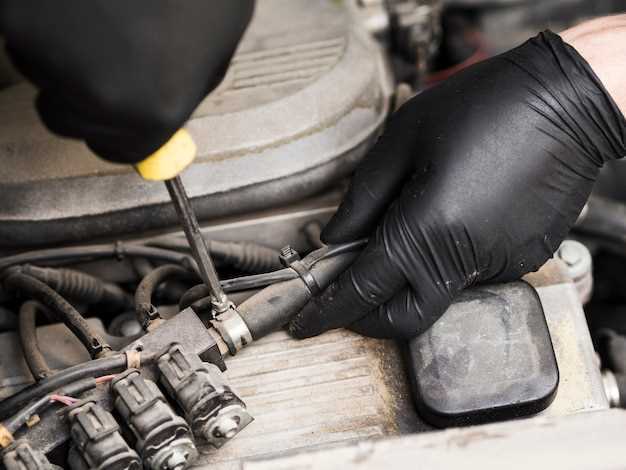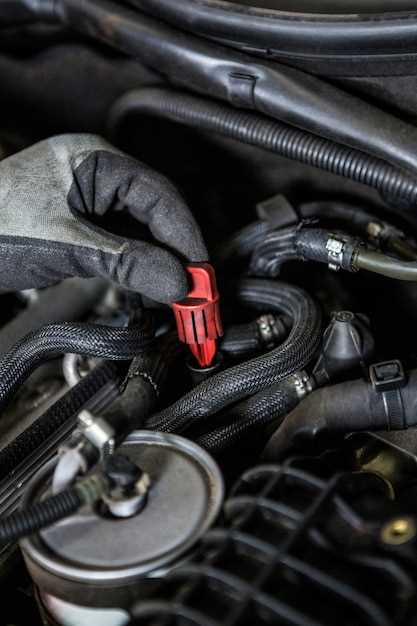
Fuel injectors are critical components in your BMW’s engine, responsible for delivering the precise amount of fuel needed for optimal combustion. Over time, these injectors can suffer from wear and tear, leading to inefficient performance and potential engine issues. Recognizing the signs that it’s time to replace your fuel injectors can save you from costly repairs and enhance your vehicle’s overall performance.
One of the most noticeable symptoms of failing fuel injectors is a decline in engine performance. If you notice a reduction in power during acceleration or a rough idling experience, this may indicate that your injectors are struggling to deliver fuel effectively. Ignoring these symptoms can lead to more severe engine problems, requiring immediate attention to the affected parts.
Another critical sign is decreased fuel efficiency. If your BMW is consuming more fuel than usual, it’s likely that your injectors are not functioning correctly, leading to uneven distribution of fuel. This not only affects your wallet but also contributes to increased emissions, which can impact the environment. Monitoring your fuel consumption closely can provide valuable insights into the state of your injectors.
Regular maintenance and timely replacement of fuel injectors can significantly improve your BMW’s performance and longevity. Understanding these signs is essential for every BMW owner to ensure smooth driving and maintain the integrity of vital engine parts.
Identifying Symptoms of Malfunctioning Fuel Injectors in BMWs

Recognizing the signs of malfunctioning fuel injectors in BMWs is crucial for maintaining optimal performance. One of the first symptoms to note is a decrease in engine performance. You may experience hesitation during acceleration or a rough idle, indicating that the injectors are not delivering fuel efficiently.
Another common symptom is poor fuel economy. If you find yourself refueling more often without a significant change in driving habits, this could signal issues with the injectors. Clogged or faulty injectors may lead to an overly rich or lean fuel mixture, adversely affecting fuel consumption.
Moreover, listen for unusual engine noises. Misfires can occur when fuel injectors fail to deliver the correct amount of fuel to the engine cylinders. This can produce a sputtering sound or cause vibrations throughout the vehicle, indicating that some parts may need immediate attention.
Visible signs of fuel leaks around the injectors can also indicate malfunction. Any puddles or stains under the vehicle suggest that fuel is escaping instead of being properly injected into the combustion chamber.
Lastly, check for warning lights on the dashboard. The check engine light may illuminate due to injector issues, often triggering fault codes related to fuel delivery or combustion efficiency. Connecting an OBD-II scanner can provide more specific information about the state of your fuel injectors.
Understanding the Impact of Failing Fuel Injectors on BMW Performance
Fuel injectors play a critical role in the engine performance of your BMW. They ensure that the right amount of fuel is delivered to the combustion chamber at the correct timing. When these components begin to fail, the consequences can be significant.
Firstly, failing fuel injectors can lead to an unstable engine performance. You may experience rough idling, decreased acceleration, or especially poor fuel efficiency. This is because inadequate fuel delivery causes the engine to struggle, leading to inefficient combustion.
Secondly, when fuel injectors malfunction, it can result in engine misfires. This issue occurs when one or more cylinders do not receive enough fuel, causing a loss of power and potential engine damage over time. Regular misfires also contribute to increased emissions and can trigger warning lights on your dashboard.
Lastly, compromised fuel injectors can cause long-term damage to other engine components. A lack of proper fuel flow can overheat the engine and affect the performance of critical components such as spark plugs and valves. Replacing injectors at the first sign of failure can prevent costly repairs in the future.
In conclusion, maintaining the health of your BMW’s fuel injectors is essential for optimal performance. Close monitoring of engine behavior can help you identify when these components need attention, ensuring a smoother and more efficient driving experience.
Choosing the Right BMW Parts for Fuel Injector Replacement

When it comes to replacing fuel injectors in your BMW, selecting the right parts is crucial for optimal performance. Authenticity is key; always opt for OEM (Original Equipment Manufacturer) injectors. These parts are specifically engineered for your BMW model, ensuring compatibility and reliability.
Consider sourcing injectors from reputable suppliers that specialize in BMW components. This guarantees that you receive high-quality parts that meet the manufacturer’s specifications. Avoid generic or off-brand injectors, as they may lead to subpar performance and potential engine issues.
It is also essential to check the part numbers and specifications of the injectors compatible with your BMW’s engine. Each engine variant may require different types of injectors. By confirming the correct specifications, you help ensure proper fuel delivery and engine efficiency.
Lastly, assess whether you need additional parts during the replacement process. Often, replacing fuel injectors may require new seals, O-rings, or even fuel rails. Having all necessary components will facilitate a smooth installation and prevent future leaks or malfunctions.



